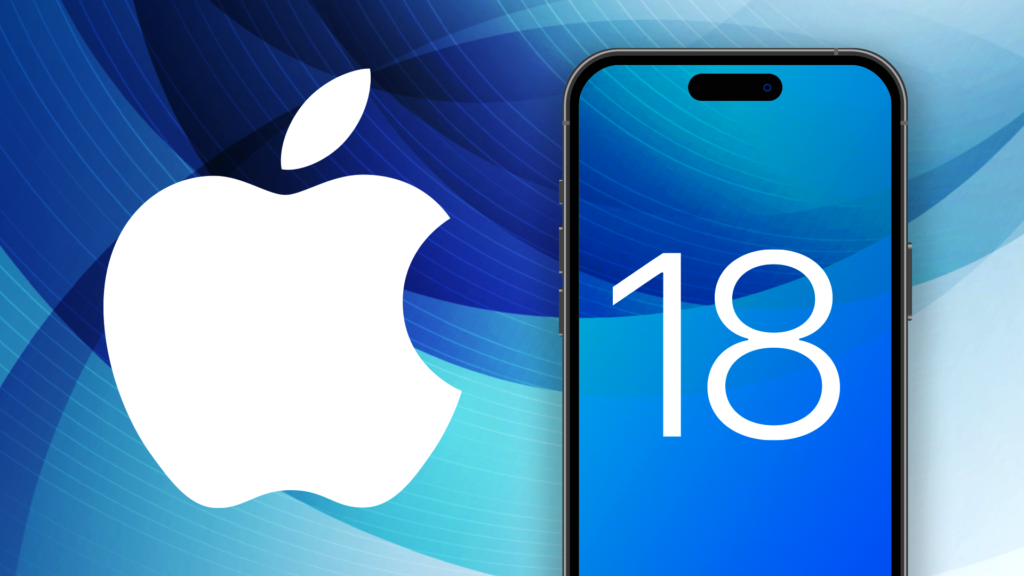Welcome to iOS beta testing, where exploring new features also means navigating potential bugs. If you’re a tech enthusiast, regular iOS user, or app developer, the iOS 18 beta 4 release is likely on your radar. While this version introduces some exciting updates, it also brings a few challenges.
This blog post will discuss the four most common iOS 18 Public Beta issues and how I successfully resolved them. Whether you’re a seasoned beta tester or new to the process, these insights can help you save time and avoid frustration.
Introduction to iOS 18 Beta 4
The iOS 18 beta 4 release is a significant milestone for Apple and its community of developers and users. This beta version introduces several enhancements that promise to elevate the iPhone experience. From improved multitasking capabilities to more intuitive user interfaces, iOS 18 beta 4 is packed with potential. However, as with any beta release, it’s not without its quirks. Users have reported various issues that impact the usability of their devices, making the testing phase both exciting and challenging.
Beta testing is a crucial step in the software development process. It allows developers to gather valuable feedback from real-world usage, identify bugs, and refine features before the official launch. This phase enables app developers to adapt their applications to the new operating system, ensuring compatibility and optimal performance. For users, participating in a beta test means getting a sneak peek at upcoming features and contributing to improving the final product.
Throughout this post, we’ll explore the iOS 18 beta 4 experience, focusing on the bugs that have caught testers’ attention. We’ll also provide solutions and workarounds to help you make the most of your beta testing adventure.
The Bugs
The excitement of exploring new functionalities in iOS 18 beta 4 is tempered by a few pesky bugs that have surfaced. These issues can disrupt user experience and hinder development processes, testing the patience of even the most dedicated Apple enthusiasts. Look at four of the most impactful bugs plaguing this beta release.
Auto-brightness Anomalies
One of the most persistent problems reported by users is the auto-brightness anomaly. While this feature is designed to adjust screen brightness based on ambient light automatically, it often fails to respond adequately. Instead of adapting to changing light conditions, the screen remains dim or overly bright, forcing users to make manual adjustments.
This bug can be particularly frustrating in environments with fluctuating lighting. Whether transitioning indoors to outdoors or simply moving around your home, the constant need to manually tweak brightness settings can be disruptive. It interrupts workflow, diminishes battery life, and detracts from the seamless experience Apple aims to provide.
Intermittent Music Playback Interruptions
For music lovers and podcast enthusiasts, uninterrupted playback is a must. Unfortunately, iOS 18 beta 4 introduces a bug that causes music and podcasts to pause unexpectedly when the screen turns on, or notifications arrive. This issue is especially bothersome for users who rely on audio entertainment during workouts, commutes, or relaxation.
Imagine jogging to your favorite playlist, only to have the music cut out whenever you check your notifications. The constant interruptions can break concentration, disrupt rhythm, and diminish the overall enjoyment of audio content. This bug has frustrated many users seeking solutions to restore smooth playback.
Continuous Microphone Access
Privacy-conscious users have raised concerns about a bug that results in continuous microphone access. The iPhone’s microphone remains active when using certain apps or features, as indicated by the orange dot at the top of the screen. This anomaly can lead to privacy violations, as users may unknowingly transmit audio data even when not actively using their devices.
The issue stems from “AccessibilityUIServer,” a background process that perpetually engages the microphone. Users have reported unease over potential security breaches, prompting them to seek ways to regain control over their devices’ privacy settings. This bug highlights the importance of vigilance in safeguarding personal information.
Sound Issues in Apps
Another bug that has garnered attention is sound-related issues within social media apps. Users have reported distorted audio, echoes, or complete silence during voice messages and calls. These glitches can hinder communication, making conversations both challenging and frustrating.
In a world where digital communication is key, clear audio is essential whether you’re catching up with friends, collaborating with colleagues, or sharing updates. Additionally, alongside these sound issues, some users have noticed quirks with the new iOS 18 calculator app, highlighting the importance of seamless functionality across all features to ensure reliable, everyday use.
Community Insights
In the iOS community, sharing experiences and insights is a time-honored tradition. Beta testers from around the globe contribute valuable perspectives, helping each other troubleshoot issues and discover workarounds. Let’s explore how the iOS community has responded to the challenges of beta 4 bugs.
Online forums and social media platforms have become discussion hubs for iOS beta testers. Users share their encounters with bugs, offering firsthand accounts of their experiences. These platforms provide a space for collaboration, enabling testers to exchange tips, report new issues, and collectively brainstorm solutions. The sense of camaraderie fosters a supportive environment where testers can find solace in shared challenges.
Innovative Workarounds
The creativity and resourcefulness of the iOS community are evident in the innovative workarounds devised to tackle beta 4 bugs. Users have discovered temporary fixes that alleviate the impact of issues, allowing them to continue testing the beta without significant disruptions. These solutions often involve adjusting settings, tweaking configurations, or employing third-party apps to mitigate problems.
For instance, some users have successfully resolved auto-brightness anomalies by enabling the “Reduce White Point” option in accessibility settings. Others have tackled music playback interruptions by disabling certain notification features or using alternative music apps. The willingness to experiment and adapt showcases the community’s resilience and determination to overcome obstacles.
Common Frustrations
While workarounds offer relief, frustrations persist as users grapple with the limitations imposed by beta bugs. Many testers express exasperation at encountering repeat issues across different beta releases. The anticipation of new features is tempered by the reality of dealing with persistent bugs that hinder productivity and enjoyment.
Despite the challenges, the iOS community remains committed to contributing feedback and aiding Apple’s development. Testers understand their insights are crucial in shaping the final release, driving improvements that benefit all users. The collective effort to refine iOS 18 beta 4 underscores the community’s dedication to advancing technology.
How to Fix Them
Bugs in beta software are expected to appear during the testing process. Fortunately, users have identified practical solutions to address the common issues encountered in iOS 18 beta 4. Let’s explore step-by-step instructions to help you overcome these challenges and maximize your beta experience.
Resolving Auto-Brightness Anomalies
To tackle the auto-brightness anomaly, begin by accessing your device’s settings. Navigate to “Display & Brightness” and disable the “Auto-Brightness” toggle. This action will allow you to manually adjust brightness settings according to your preferences and environmental conditions.
In addition to manual adjustments, consider enabling the “Reduce White Point” option in the accessibility settings. This feature reduces the intensity of bright colors, providing a more comfortable viewing experience without relying on auto-brightness. While not a permanent fix, these steps offer temporary relief until Apple addresses the underlying issue.
Mitigating Music Playback Interruptions
If you’re experiencing music playback interruptions, examine your notification settings. Disable certain notifications or adjust the timing of alerts to prevent interruptions during audio playback. This strategic approach minimizes disruptions caused by incoming notifications and screen activations.
Alternatively, explore third-party music apps that offer seamless playback experiences, free from the limitations of the native music app in beta 4. By diversifying your audio sources, you can enjoy uninterrupted entertainment while Apple works to resolve the issue in future updates.
Regaining Control Over Microphone Access
Head to your settings’s “Privacy” section to regain control over continuous microphone access. Review the list of apps with microphone permissions and disable access for non-essential applications. This proactive measure safeguards your privacy by limiting unnecessary microphone engagement.
Additionally, check the “Accessibility” settings for any features contributing to microphone activity. Disabling “Vocal Shortcuts” has proven effective for some users, eliminating the orange dot and restoring peace of mind. By taking these steps, you can ensure greater privacy and security while participating in the beta testing process.
Addressing Sound Issues in Social Apps
To address sound issues in social apps, consider using wired or wireless headphones to improve audio quality during calls and voice messages. Headphones often provide clearer sound and reduce echoes, enhancing communication experiences.
If sound problems persist, experiment with adjusting the volume settings within the control center. Reconfigure sound and notification settings to optimize audio performance across different apps. Adopting these strategies allows you to maintain clear communication even in the face of beta-related sound challenges.
The Importance of Feedback
Beta testing is a collaborative effort that relies on user feedback to drive improvements and refine software features. Your input plays a vital role in shaping the final release of iOS 18, ensuring it meets the needs and expectations of users worldwide. Let’s explore why providing feedback is essential and how you can contribute effectively.
Fueling Innovation
Feedback acts as the catalyst for innovation, guiding developers in fine-tuning features and addressing bugs. Sharing your experiences and insights provides valuable data that informs development decisions. Your observations help developers prioritize fixes, optimize performance, and create a polished final product that delights users.
Empowering Users
Submitting feedback empowers you as a user, allowing you to participate in the evolution of iOS actively. Your voice contributes to shaping the future of technology, ensuring that software aligns with the needs and preferences of diverse users. This collaborative approach fosters a sense of ownership and engagement, making you an integral part of the development process.
Strengthening Community Bonds
The act of providing feedback strengthens the bonds within the iOS community. By sharing your insights, you contribute to a collective pool of knowledge that benefits fellow testers. Your experiences may resonate with others facing similar challenges, fostering camaraderie and support in overcoming obstacles.
Conclusion
Beta testing is a dynamic and rewarding endeavor that brings together users, developers, and tech enthusiasts. Despite the challenges of bugs, the opportunity to explore new features and contribute to software enhancement is invaluable. Through collaboration, creativity, and persistence, we can collectively shape the future of iOS.
By addressing common bugs in iOS 18 beta 4, leveraging community insights, and providing constructive feedback, we pave the way for a smoother and more refined final release. Your contributions matter, and the iOS community thrives on your insights and dedication.






